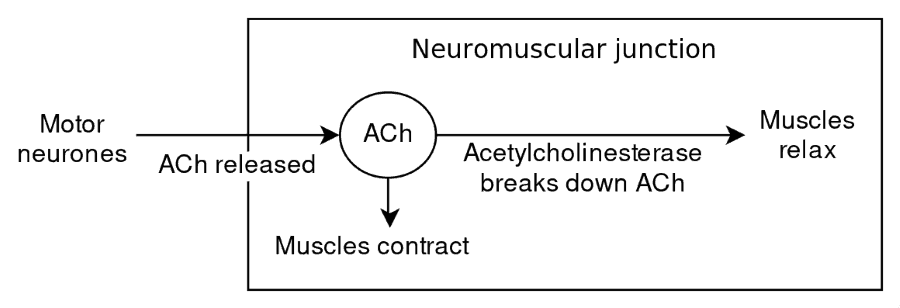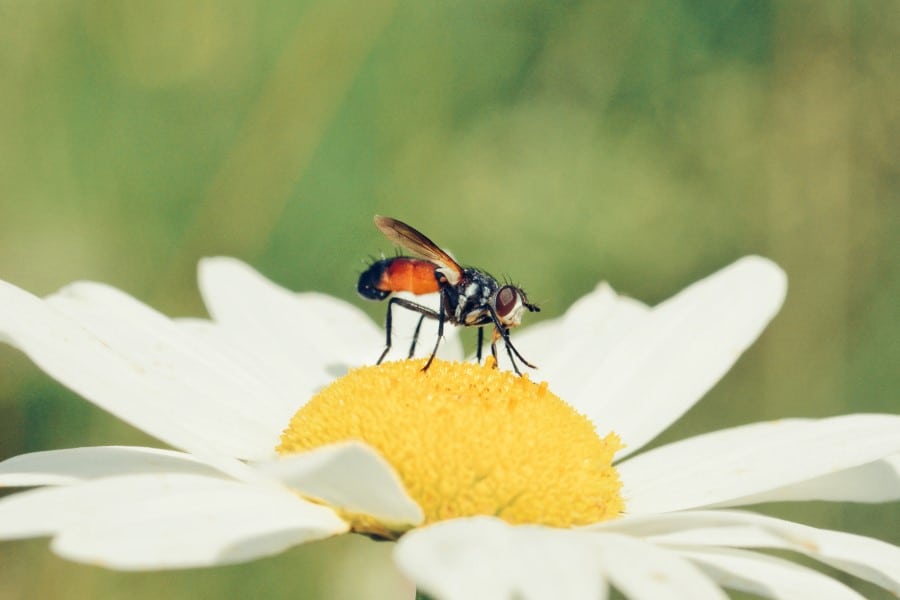Whether applied to your arms and legs or your kitchen floor, fly spray is one indispensable tool we have to combat the everywhere nuisance of houseflies and the like—perhaps second only to the immediately effective and more dramatic solution involving a rolled-up newspaper.
Not that here on Ranger Planet we’re advocating the murder of any kind of creatures! But it got me to thinking, how does this strange, lethal-to-flies (and fish and pets, mind you) substance do its job?
How can it be so harmful to small insects but safe (reasonably safe) for humans to spray liberally (cautiously) about their homes?
The term fly spray is quite widely applied to two kinds of pesticides: insect repellents, designed to discourage insects from landing on you; and insecticides, designed to kill insects or otherwise inhibit their multiplying.
Here’s the quick answer, then we’ll dive into more detail…
How does fly spray work? In short, fly spray insecticides disable the acetylcholinesterase enzyme that a fly needs to relax its muscles. The non-stop muscle contraction then makes it impossible for it to breathe, so it suffocates to death.
Acetyl-what now?
Acetylcholinesterase. That’s right! Here’s some audio on how to pronounce it…
Pronounced – uh·SEET·l·koh·luh·NES·tuh·reys
The chemistry behind fly spray
To understand precisely how fly spray works, we first need to understand some of the chemistry behind muscle contraction.
Acetylcholine (ACh) is an organic chemical used as a neurotransmitter in the bodies of many many living things—including you and me; ACh is used to send messages from nerve cells to other cells such as muscle cells.
One such use-case is in the neuromuscular junction (NMJ), where the motor neurons release ACh in order to stimulate muscle contraction. Then, an enzyme called acetylcholinesterase is released into the NMJ to catalyze the breakdown of ACh, thereby relaxing the muscles.

Fly spray insecticides contain organophosphate compounds which bind to the acetylcholinesterase enzyme and prevent it from being used to break down ACh in the NMJ. As a result of this, the fly cannot relax its muscles, causing it to enter a tetanic seizure, starving of oxygen before collapsing into its asphyxia death.
How long does it take for the fly to die?
If applied cleanly, it’s typically a matter of a few short seconds before it’s all over. Perhaps a few seconds longer for particularly large bugs. Some of the movement you might see after those initial 10 seconds or so are possibly down to continued post-mortem muscle spasms. Particularly strong or large flies might struggle for a little longer.
What about bees? Cockroaches? Moths? Spiders?
Many fly spray aerosols market themselves as being lethal to wasps or cockroaches as well as houseflies.
You should learn to identify bees: wasps and yellow-jackets are also low-level pollinators, so they can’t be killed guilt-free by swatting or fly spray, honeybees are even more special though, they’re an endangered species and should be carefully taken or let outside.
Yes, fly spray is lethal to ants, but it’s not really a good solution since ants will be hiding away in cracks and crevices in your house, and you won’t be able to spray it into all those areas, so you won’t be anywhere close to eradicating their colonies.
As for moths, there are alternative aerosol sprays marketed precisely to kill moths.
Does fly spray kill spiders? Well, yes, eventually. Depending on the size of the arachnid in question, it will just require a larger spray dosage and more time for them to die.
Still, I would highly recommend the timeless clean and merciful solution of trapping them under a glass, sliding something underneath, taking them outside and hoping they don’t come crawling back.
Spiders are the neatest regulator of bug-sized pests—your personal autonomous and natural insect pest control solution, and they don’t cost a thing. So it’s usually wiser to relocate them than to kill them.
Do the flies feel pain?
The question of whether insects have the capacity to experience pain is a long-standing and ongoing debate among scientists and ethicists alike. And that’s because it’s not an easy question to answer.
Higher-order animals like humans differ greatly from insects in the way they feel pain. Our nervous system involves a process whereby our nerves send signals to our brain which compares them with past experiences and interprets them accordingly, deciding ultimately how we react physically and emotionally.
No such process is known to occur in the bodies of insects. Insects, you see, guide their decision-making by genetic instinct rather than past experience, which indicates that pain would not prove as useful to them as it does for larger organisms, and so why would natural selection favor their feeling pain?
Once injured, they continue about their bug lives with blind optimism. They explore, feed and mate right up until death – if they can.

What does fly spray do to humans?
Regardless of its exact composition, it’s important to keep your fly sprays out of reach of children and pets. Keep them locked up if you can (the spray, not the children).
Most insecticides contain neurotoxins that target both animals and insects, whereas some are derived from plant-based insecticidal weaponry. Fly spray products have warnings on the labels with regards to toxicity to humans. Since the ingredients vary between products, you should read the labels to be sure.
Many fly sprays make use of the household insecticide dichlorvos (DDVP), which has been the cause of much controversy due to its contamination of our water and its toxicity and carcinogenic potential towards humans and other animals as well as insects. Because of this, DDVP has been banned in the EU for decades now but is still available in other countries including the US.
To finish off…
Still, whether we are right to bring these little mini-beasts to harm is a very complicated question indeed. We may never know truly how the smaller species experience the world.
Here’s an alternative method in the form of a fly trap from amazon you might want to try which may or may not cause less pain but is likely to be more beneficial to the fly …and your conscience!
I hope this article helps you understand how Fly Spray affects Flies and/or Kills flies!

